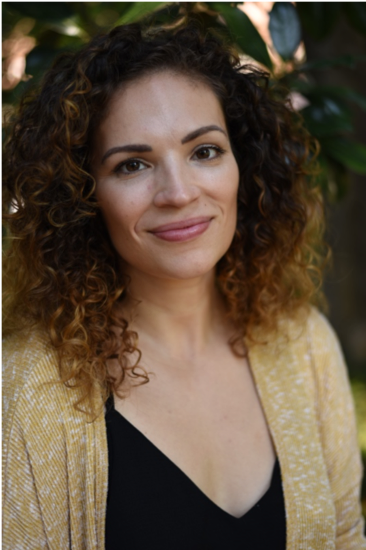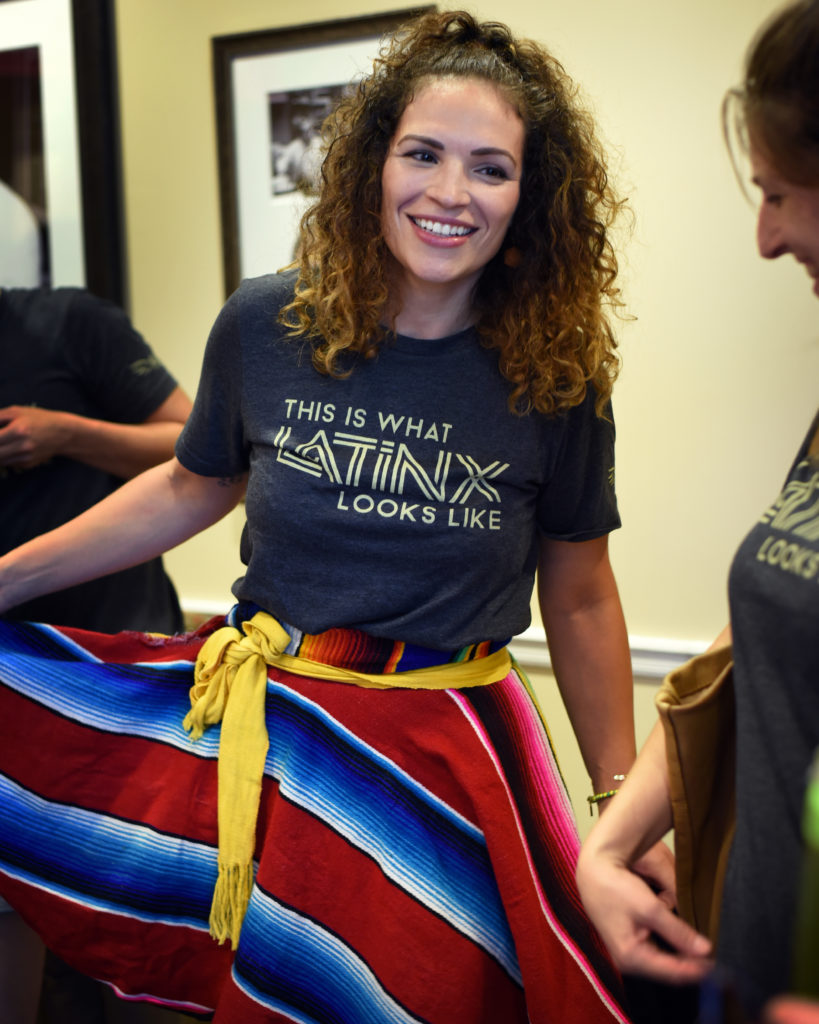Elsa Mercado Sanchez, PhD’20 | Stronger together: the future of VU’s Latinx community
Elsa Mercado Sanchez has not always had a clear or easy path to the Ph.D. she is pursuing. She grew up in an urban, racially-segregated neighborhood in Milwaukee, Wis., with Mexican immigrant parents who didn’t speak much English. Education was a top priority for her parents, but college was never a guarantee.

Mercado Sanchez’s parents sacrificed to keep moving upward. They worked first- and third-shift jobs for years, passing each other in the night so they could send their four children to private schools and move the family to a better neighborhood. Their sacrifices paid off.
Today, Mercado Sanchez is in her fifth year of the Ph.D. program in Spanish and Portuguese, with just her dissertation to complete. She will be the first Mexican-American to graduate from the program. The challenges she faced to get to this point are not new to first-generation, low-income, or minority students—and, to her credit, she sees them as a positive influence on her success.
“I don’t like to talk about my upbringing as a place that I survived,” Mercado Sanchez said. While the average person often associates the type of neighborhood Mercado Sanchez grew up in with high levels of crime, violence, and poverty, that’s not what she remembers about her upbringing. She wasn’t looking to escape from her neighborhood, she said. It nurtured her and built her to be strong and tackle adversity. It prepared her for the success she has now. It also prepared her for the research she is doing for her dissertation.
At home with her grandmother while her parents were working, Mercado Sanchez heard stories about the struggle and strength of her grandmother’s upbringing in rural Mexico. These emotional accounts, along with her own experience, made Mercado Sanchez realize that she wasn’t seeing the stories of Hispanic women reflected in the world—in history, culture, academia, or anywhere else. The world that Mercado Sanchez heard about from her grandmother felt “secret and private,” she said. It was a narrative and perspective that was invisible to the wider culture.
Today, she seeks out these types of stories for her research. For her dissertation, Mercado Sanchez is doing groundbreaking work to bring more visibility and a voice to the experiences of Hispanic women, and exploring the reasons behind their marginalization.
“I focus on the women in Spanish-speaking Latin America, and why their voices have been excluded for so long and what they have to offer,” Mercado Sanchez said. “We look at so many places where their voices are missing or invented and they just don’t capture [reality].”
“For me,” she said, “the work feels like home.”
This strong connection to her heritage also influences much of what Mercado Sanchez does on campus. The drive to make connections and understand others is the hallmark of what she seeks to accomplish at Vanderbilt.
Whenever she’s asked about her experience as a first-generation student, Mercado Sanchez is less interested in talking about the obstacles she’s overcome, and more interested in how she hopes to eliminate obstacles for the next generation of students. She focuses on continuing to pave the way for the students who will follow her.
“That’s also part of being one of the first: you have to hold the door open for those coming in,” she said. “It’s just part of the responsibility. The goal is to be the first, not the last, not the only.”
Nearly 10 percent of Vanderbilt students are Hispanic (of Spanish-speaking heritage), and the percentage of Hispanic and Latinx (of Latin American descent) college students is growing on college campuses nationwide. With this growth, representation has become increasingly important. Hispanic and Latinx students want to see themselves reflected in the makeup of campus organizations and faculty, and they want to find physical spaces where they can gather for cultural celebrations and mutual support.

Even though Mercado Sanchez grew up in a segregated neighborhood, her community was diverse with Hispanic and Latinx cultures. It made for a unique and stimulating childhood, she said. “We focused on points of contact—like language or religion or food. It became kind of like a fusion. We still honored the diversity and the differences within [our community], but we highlighted the points of contact and became each other’s families.” It’s the kind of environment Mercado Sanchez would like to grow here.
She sees a future for Latinx students where they have more opportunities to come together and share their experiences, be a resource to one another, and celebrate their shared culture. She sees faculty and leadership roles that reflect the diversity of the student body. She sees organizations and events that highlight the accomplishments and traditions of Latinx students. She sees a future filled with even more successful Latinx students, making a difference on campus and in the world.
“It’s important to make sure these students succeed and that they don’t just survive their undergraduate experience,” Mercado Sanchez said. “Because it’s important that they thrive. If they do well here, then they’re going to do well everywhere else.”
